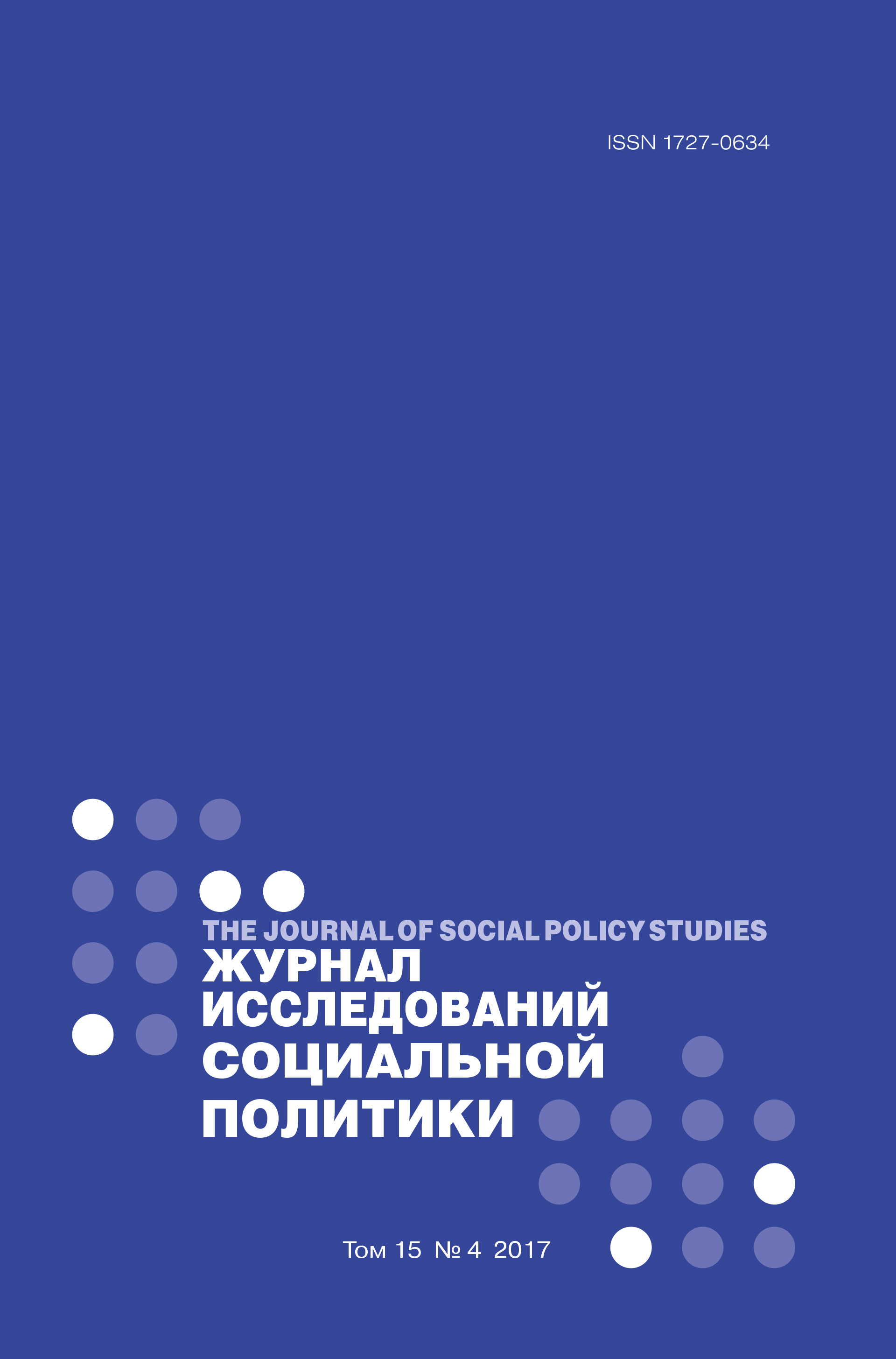One Hundred Years of Social Policy Transformation in Russia
Abstract
Irina Grigoryeva – Dr. Sci. (Sociology), Professor, Professor of Theory and Practice of Social Work, St. Petersburg University, Russian Federation. Email: soc28@yandex.ru
DOI: 10.17323/727-0634-2017-15-4-497-514
The revolutionary transformations of 1917 should be seen as complex, rather than as linear and unambiguous. Obviously, mutual interdependence and interactions have occurred between the Revolution and Russia’s tsarist past, even if there were claims that certain historical actions or events were occuring for the first time in world history. I argue characterizing the USSR as a country with an 'advanced social policy' is in many ways not justifiable. The complexity of achieving a theoretical reconstruction of social policy is due to internal contradictions in society and its division into certain sectors, social groups, territories that often have conflicting interests. The Soviet ideology of equalization (uravnilovki) prevented the recognition of differences, although real politics has been very selective both in the Soviet era and now, after twenty-five years of transformation. Furthermore, the history of the last one hundred years of social policy in Russia and in the West is subject to constant changes in interpretation in social science. During one phase, policies are introduced to reduce the role of the state; in the next period we find reforms trying to give the state more powers. The aims of this overview are to reconstruct some of the forms of interdependence among individual agents and society, to clarify the role of individuals in the objective framework of Soviet and post-Soviet social policies. We proceed from the belief that, while structural factors are very important, citizens are also subjects of their own lives and can play an active role in social transformations. The history of social policy can be described through interaction of two main approaches, liberal and social-democratic, or in other words, selective and universal. This means that social policy can be addressed to certain groups of the population (workers, children, elders) or to the population as a whole. But which decisions are 'liberal' and which are 'social-democratic', or which combination is at stake at a particular moment in history, is always a matter of negotiation. Therefore, the transformation of the Imperial, then Soviet and then Russian social policies are the subject of constant discussions.















